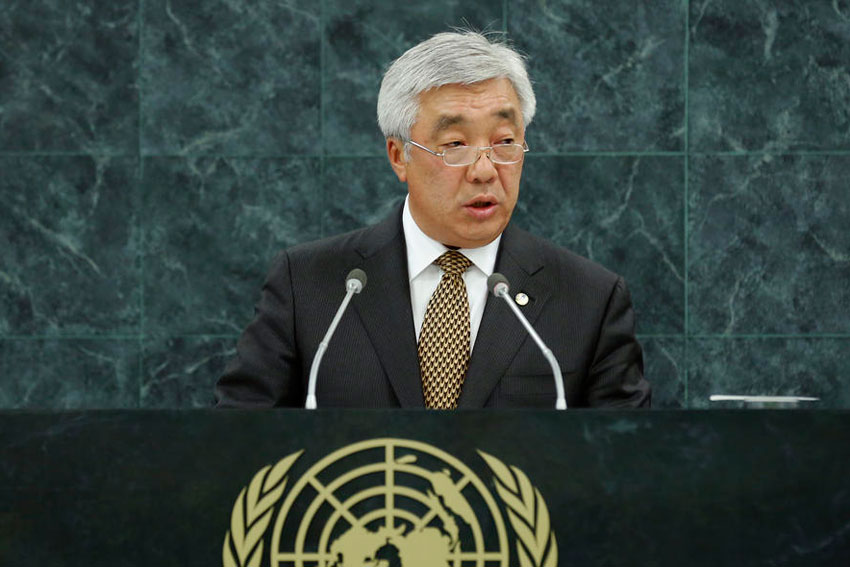Central Asian countries cite instability in Afghanistan as serious threat
Addressing the Assembly’s 68th high-level debate, Uzbek Minister of Foreign Affairs Abdulaziz Kamilov, stressed the only way to end the Afghan crisis is through a political solution based on negotiations with the main confronting forces and achievement of consensus “regardless of how difficult it might be and given the active assistance on the part of the international community and the United Nations.”
Mr. Kamilov noted that as the International Security Assistance Force (ISAF) draws down next year, the conditions could lead to an escalation of the confrontation in the country which could have a negative impact on Central Asia and neighbouring regions.
Uzbekistan, the Foreign Minister noted, will continue to adhere to an “open and clear” policy with respect to Afghanistan based on principles of good neighbourliness and non-interference in its internal affairs.
In his statement, Mr. Kamilov also stressed the importance of water resource management, and particularly the problem of the drying up of the Aral Sea.
Meanwhile, the Minister of Foreign Affairs of Kazakhstan, Erlan Idrissov, stressed his country’s commitment to sustainable and stable development of Afghanistan, in keeping with the Istanbul progress and the Almaty forum.
“The Asian continent is transforming itself into a global power house for the 21st century, with its production of more than 57 per cent of global GDP - and this trend is expected to increase,” Mr. Idrissov said. “However, this growth could be jeopardized by an aggravation of existing conflicts, illegal migration, drug trafficking, territorial claims, separatism, religious extremism and terrorism.”
To counter these, the Foreign Minister called for a regional security architecture to more effectively make joint decisions related to security and cooperation in Asia.
Mr. Idrissov also urged nuclear abolition, noting that when the Semipalatinsk nuclear site closed shortly after the country’s independence in 1991 and renounced the fourth largest nuclear arsenal in the world, Kazakhstan “made a unique contribution in the multilateral effort to achieve a world free of nuclear weapons.”
The General Assembly debate continues through 1 October.


